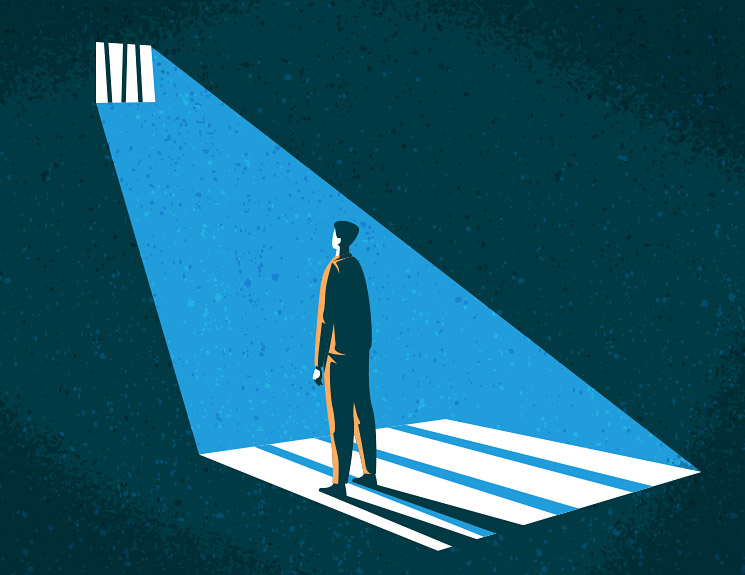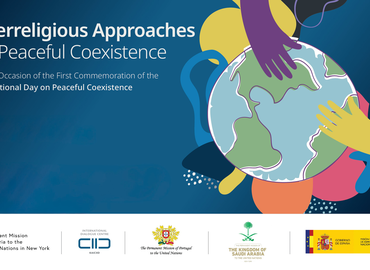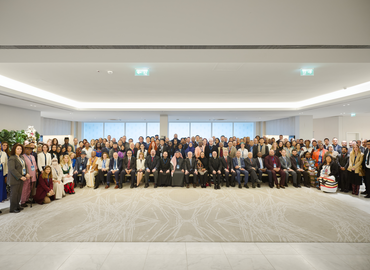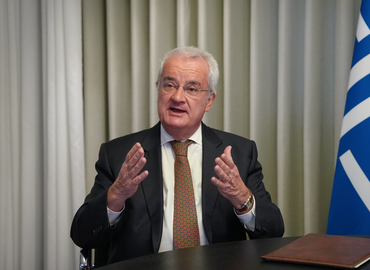Faith Leaders Step in to Provide Humane Treatment of Incarcerated Individuals during COVID-19

Faith leaders and policy experts called on governments around the world to uphold the health and human rights of imprisoned and detained individuals during the COVID-19 pandemic, at a recent webinar on the humane treatment of incarcerated people.
Held on 12 August, the webinar was hosted in partnership by the International Dialogue Centre (KAICIID), the Coalition of Faith Based Organizations, and the United Nations Office on Drugs and Crime (UNODC). It was part of an ongoing series examining the role of religious leaders in response to pressing social justice issues such as violence against women, poverty and climate change.
According to the Office of the United Nations High Commissioner for Human Rights (OHCHR), nearly 11 million prisoners and other detainees are being held worldwide in often overcrowded and unsanitary conditions. The lack of space and access to adequate health care and hygiene has provided insurmountable obstacles for preventing, preparing for or properly responding to COVID-19 within prisons and detention centres around the world.
OHCHR experts also warn that “widespread community transmission of COVID-19 within a correctional institution is likely to result in a disproportionately high COVID-19 mortality rate.” Based on their report, both prisoners and detainees may be facing a literal death sentence.
“How we respond to [COVID-19] will reflect the morals of our time”, said Sister Alison McCrary, President of the Louisiana Chapter of the National Lawyers Guild and spiritual advisor on Louisiana’s death row, during the webinar.
Keeping prisoners healthy is not only important for upholding human rights but also for protecting communities, McCrary argued.
“For the first time, there's an opportunity to really look at how incarceration impacts all of us. When there's a pandemic spreading, and you have people who cannot socially distance and take precautions and then they are released into communities, we see how it’s all connected,” she said.
FBOs can meet COVID-19 funding and resource gaps
Dr. Karin Bruckmüller, University Professor at the Sigmund Freud University Vienna and expert on prison law, explained that faith-based organizations (FBOs) and religious institutions are key to ensuring that prisoners and staff members are “not forgotten in this corona crisis.”
“Prison systems must react rather quickly to hygienic and medical measures to avoid infections”, she said, outlining that many are also prevented from doing so due to a lack of funds, supplies, or space.
According to Bruckmüller, this provides the perfect opportunity for FBOs and religious institutions to step in to meet funding and resource gaps.
For example, if governments opt to release minor offenders early, religious communities may be needed to provide temporary housing to ensure that released prisoners are not homeless and at equal risk of infection both for themselves and the community around them.
McCrary added that religious organizations can also help with resocialisation programmes, especially since individuals who have been incarcerated since before the pandemic, may be unaware of the expectations and social changes in their communities.
“It’s important to normalise the wearing of masks and other precautions, and to say that everyone is doing this, so that the person coming home from prison doesn’t feel further ostracised or like they have a disease or are a bad person”, she said.
Incarcerated individuals need pastoral care and mental health services
For individuals still incarcerated, Bruckmüller mentioned a desperate need for pastoral care and support, particularly with mental health services, as anxiety and fear over the pandemic rise within prisons and detention centres. Many religious institutions are also stepping up to offer hospital and health services, especially for overcrowded prisons that cannot provide isolation or quarantine facilities.
“And,” Bruckmüller said, “we must not forget the families in this extraordinary situation. Here especially, members of FBOs are demanded. Their positive encouragement can reduce fear on all sides.”
She suggested religious communities provide computer stations for family members who do not have access to technology so that they can have virtual conversations with their relatives in prison. This is particularly important to protect the mental health of both parties, since most prisoners are no longer allowed to receive external visitors and are suffering from loneliness and isolation.
According to Reverend George Harrison, a Catholic Priest and Prison Chaplain from Malaysia, religious leaders and institutions in his home country have also been particularly concerned with mental health and wellness of prisoners, broadcasting in weekly faith services and providing them with digital means to connect with pastoral care since direct contact is currently banned.
Harrison said that these digital conversations have also helped alert faith leaders to various hygiene needs of prisoners such as requests for bars of soap and masks. Over the past few months, various faith groups such as Christians and Buddhists, in addition to FBOs and NGOs, have been holding donation drives and distributing these vital products.
McCrary believes these are positive first steps, but that the responsibility for religious institutions and FBOs to answer the call for increased human rights and social justice both during and after the pandemic is only just beginning.
“We're faced now with how we reckon with our own conscience in this moment and the world that we leave behind for future generations, and how we collectively respond to this pandemic, which is calling for us to use it as a portal for social change.”

As discrimination, hate speech and identity-based violence…

- KAICIID marks 10 years of global peacebuilding, uniting over 130 leaders in…

